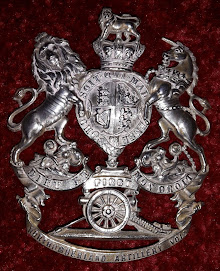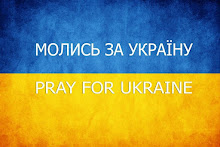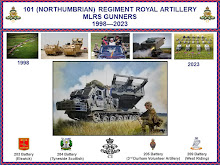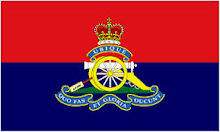On the outbreak of World War Two life in the Channel Islands was relatively unchanged. Despite the war the islands remained a tourist destination. On the 10th May 1940, the Germans launched their Blitzkreig in the west invading Belgium, Luxembourg and the Netherlands. The Germans smashed through the Low Countries and into France. The British Expeditionary Force was force to withdraw to the English Channel and ultimately evacuate via Dunkirk.
The fall of France on left the Channel Islands isolated. The British Government assessed that the Channel Islands were of no strategic significance, and that they could not provide the resources to defend the islands. As a consequence it was decided to demilitarise the islands, and the last military personnel left on 20th June 1940. There was also an evacuation of civilians, including many children.
 |
| Evacuees |
On the 24th June 1940 King George VI sent a message to the Islanders outlining the rationale behind the demilitarisation.
It was unfortunate that the British Government did not officially inform the Germans that the Channel Islands had been de-militarised. In order to test the strength and capabilities of the defences of the islands, the Luftwaffe conducted armed reconnaissance raids on the 28th June 1940. The harbours in Guernsey and Jersey were bombed.
In St Peter Port, Guernsey, lorries full of tomatoes lined up on the quayside were though to be troop carriers and were targeted. The raid resulted in 34 civilians being killed and 67 injured.
 |
Guernsey St Peter Port
Air Raid 28th June 1940 |
The undefended island could offer no resistance. As a result a lone reconnaissance plane landed at Guernsey Airport 30th June 1940. Establishing their were no defences it departed. Later in the day several planes returned with Luftwaffe troops who 'officially' took possession of the island.
 |
| Guernsey Airport 1940 |
 |
| Guernsey Airport 1940 |
Inspector Sculpher of the Guernsey police went to the airport carrying a letter signed by the bailiff stating that "This Island has been declared an Open Island by His Majesty's Government of the United Kingdom" The senior German officer, Major Albrecht Lanz, went by police car to the Royal Hotel to meet the bailiff, the president of the controlling committee, and other officials. Lanz announced through an interpreter that Guernsey was now under German occupation.
Jersey surrendered on 1 July. Alderney, where only a handful of islanders remained, was occupied on 2 July and a small detachment travelled from Guernsey to Sark, which surrendered on 4 July.
 |
| German Officers meet the Dame of Sark |
The Islands became under the command of the 216th Infantry Division and the Germans started to bring in infantry, anti-aircraft and establish defences.
 |
| German Troops St Peter Port |
By July 1940 anti-aircraft batteries were established.
 |
| Guernsey German anti-aircraft gun |
Control passed from the military forces to the Military Government with the establishment of Feldkommandantur 515, which operated through the existing civil administration.
 |
Headquarters (Kommandantur) at the former Channel Islands Hotel
Glategny Esplanade, Saint Peter Port, Guernsey. |
 |
| German soldiers St Peter Port |
 |
| IJ Guernsey St Peter Port 2017 |
German occupation brought about restrictions. A curfew was imposed between the hours of 11pm and 5am and ID cards had to be carried. Coastal areas and military installations became prohibited to civilians.
 |
| Guernsey - Rule of Conduct |
 |
| Guernsey prohibited areas |
German influences prevailed on Guernsey. Central European time replaced British Standard Time. Schools began to teach German. German films were shown in cinemas.
 |
| Gaumont Palace Cinema showing German Films |
 |
| Notice detailing cinema arrangements |
 |
| British Bobby directs Luftwaffe Soldier |
In June 1941, Germany invaded the Soviet Union. Adolf Hitler feared that Britian would take the opportunity to cause problems in the West and try to recapture the Channel Islands. The 316th Infantry Division supported by armoured units were sent to reinforce the Islands.
On 20th October 1941 he issued a decree to fortify and defend the Channel Islands. The islands were to be turned into an impregnable fortress. Coastal Artillery emplacements were to be built , anti-aircraft defences strengthened and anti-invasion defences were to be put in place. An underground hospital would handle casualties.
The construction of the defences was to be under control of the Organization Todt and involved the use of many forced labour workers.
 |
| Forced labour workers constructing defences |
 |
| German Fortifications Guernsey |
 |
| Guernsey German Defences |
 |
| Guernsey - Mirus Battery 30.5 cm gun |
 |
| Guernsey - Mirus Battery 30.5cm gun diagram |
The invasion of the Soviet Union raised British concerns over Persia (modern day Iran) and the protection of oil interests there. A joint Soviet / British demand was made to Persia to expel all German citizens in the country. Hitler was furious when he found out what was happening in Persia and responded by means of reprisal by ordering the deportation of Channel Islanders. Deportations began on 16th December 1941.
Those Channel islanders that were deported mainly ended up in internment camps in Biberach, Laufen and Wurzach-Allgau.
 |
| Biberach Internment Camp Germany |
 |
| Internment Camp accommodation |
Further restrictions were placed on the civilian population in June 1942 when it was ordered that all radio sets were to be handed into the German authorities. Those who failed to do so could be imprisoned. The ban lead to some sets being hidden, and construction of simple crystal sets in order to listen into the BBC.
 |
| Tuning in to the BBC |
On 6th June 1944 the Allies landed on the beaches in Normandy and the liberation of Europe from Nazi rule started.
The invasion of France began to strain the German supply lines. War time shortages were exacerbated by the disruption of German logistics. In August 1944 American forces captured St Malo, cutting supply lines to the Channel Islands.
The situation in the Channel Islands worsened, dwindling food supplies left both the civilian and German forces facing starvation. After protracted negotiations the Red Cross ship "SS Vega" arrived from Lisbon in St Peter Port, Guernsey on 27th December 1944.
 |
| SS Vega entering St Peter Port |
 |
| SS Vega St Peter Port |
The SS Vega brought Red Cross parcels donated by the people of Canada and New Zealand which contained food, tobacco and hygiene items.
 |
| Red Cross Parcels |
 |
| Red Cross parcel contents |
The SS Vega would make five more trips to the Channel Islands bringing vital supplies which saved the Islanders from starvation.
 |
| SS Vega |
On 8 May 1945 at 10:00 the islanders were informed by the German authorities that the war was over. German forces had unconditionally surrendered as the Allies forced their way into Berin.
British Prime Minister Winston Churchill made a radio broadcast at 15:00 during which he announced that:
Hostilities will end officially at one minute after midnight tonight, but in the interests of saving lives the "Cease fire" began yesterday to be sounded all along the front, and our dear Channel Islands are also to be freed today.
On the morning of 9th May 1945 ships of the Royal Navy lay off Guernsey St Peter Port.
 |
| Royal Naval ships St Peter Port Guernsey 1945 |
On board HMS Bulldog the Germans signed an unconditional surrender of all troops in the Bailiwick of Guernsey. A similar ceremony took place on HMS Beagle in Jersey.
 |
| German surrender HMS Bulldog 9th May 1945 |
 |
| Guernsey Liberation House |
At 07:50 1945 four British officers and 21 men, including 4 Guernsey men, landed in St Peter Port. The men, from Force 135, were met with a tumultuous welcome.
 |
Guernsey Liberation - British Troops arrive prince Albert Pier
Source: Imperial War Museum |
 |
| Guernsey Liberation - Weighhouse St Peter Port |
 |
| Guernsey Liberation - Crowds cheer the Liberators |
 |
| Guernsey Liberation - Brigadier Snow Force Commander is welcomed |
 |
Guernsey Liberation
Brigadier Snow reads official proclamation
Elizabeth College |
 |
Guernsey Liberation
Official Proclamation of Liberation |
The Channel Islands were now officially Liberated.







































































